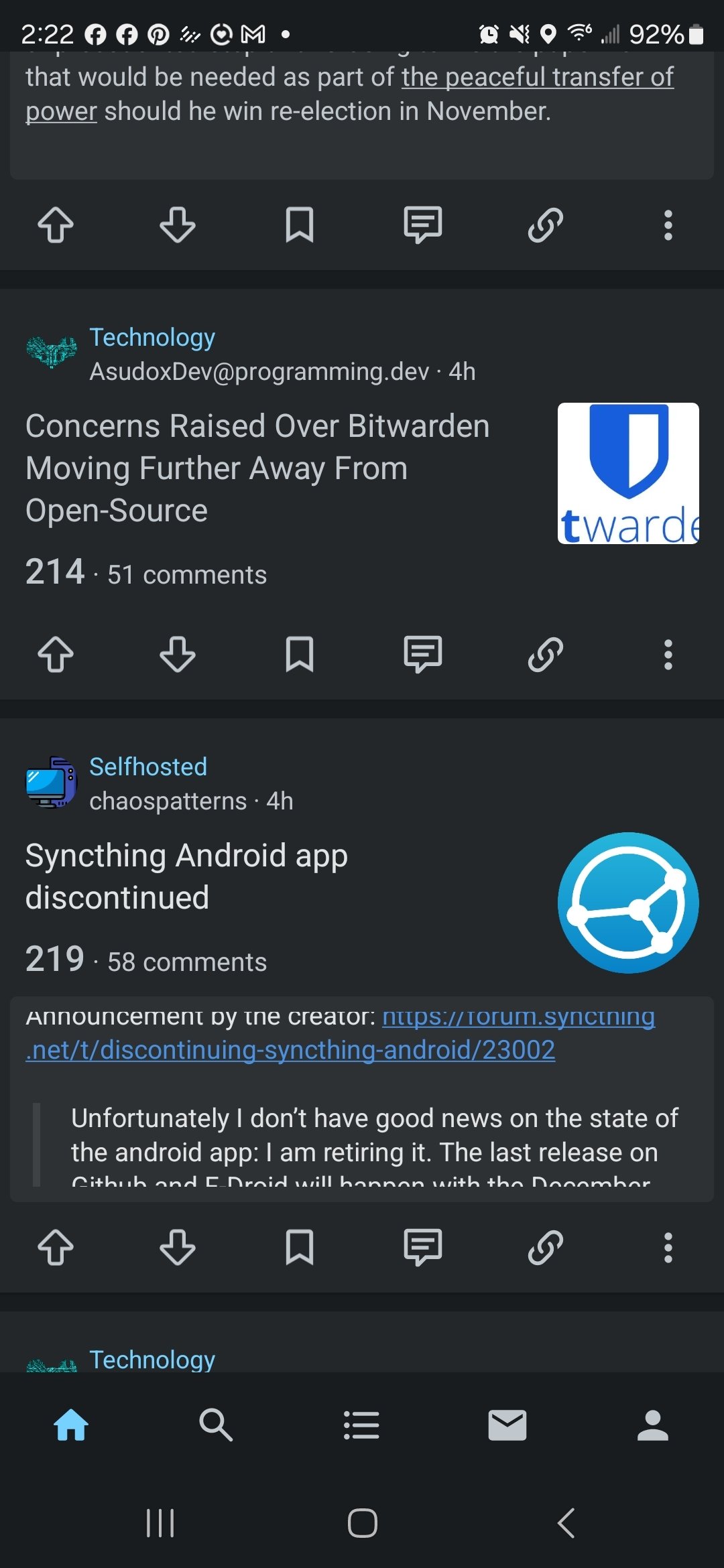this post was submitted on 20 Oct 2024
619 points (87.2% liked)
Technology
59415 readers
2808 users here now
This is a most excellent place for technology news and articles.
Our Rules
- Follow the lemmy.world rules.
- Only tech related content.
- Be excellent to each another!
- Mod approved content bots can post up to 10 articles per day.
- Threads asking for personal tech support may be deleted.
- Politics threads may be removed.
- No memes allowed as posts, OK to post as comments.
- Only approved bots from the list below, to ask if your bot can be added please contact us.
- Check for duplicates before posting, duplicates may be removed
Approved Bots
founded 1 year ago
MODERATORS
you are viewing a single comment's thread
view the rest of the comments
view the rest of the comments
Keepass vault synced over syncthing.
I keep not regretting it.
This is incredible
Right next to each other lol
Syncthing fork seems to still be under active development
Was going to be my solution as well, bjt Syncthing-Android just got discontinued.
F-Droid syncthing-fork is still actively developed and had a patch in the last few weeks.
So hopefully this isn't the end.
What? I need syncthing-android, where is it going?
F-Droid syncthing-fork is still actively developed and had a patch in the last few weeks.
Good to know
I was thinking the same. But, it is safe to share the password database like this?
Consider the possibility that someone could get your database.
It isn't a safe. You can't weld through the side of it and get in. You either make it ridiculous or impossible to get in.
Use something memorable, but insane.
My password is a three-line film quote with numbers in some of the places for letters.
Haikus work great. Memorable, complex. Wrote it yourself? Even better.
Syncthing is encrypted transfers.
The database is encrypted.
And you can set it to not use relays for data, only matchmaking between your own devices.
So it's an encrypted file, encrypted again, and sent directly from an IP you own to an IP you own.
I've always loved Keepass, however I moved away from it in 2012 as it and any file based vault has brute forcing issues. You need to track every copy of it that has been made and if any copy falls out of your hands, like if you lose a device, you need to do a password rotation on 100% of your passwords. Since its a file, its not possible to prevent brute forcing.
everything's a file
An online database is still a file ultimately. A SQL or other DB file stored in a webserver, accessed through a web interface.
Vaultwarden, etc, are the same, only the database file is less directly visible IMO. Keepass IMO is simple. The DB in a bespoke format, stored outside the application.
You could put the vault in system32 and name it "trustedinstaller.log", and if someone saw you had keepass they wouldn't even know where your vault is.
Given the number of well documented breaches of online password vaults, I would much rather do a private device to device sync via syncthing and keep it out of webservers.